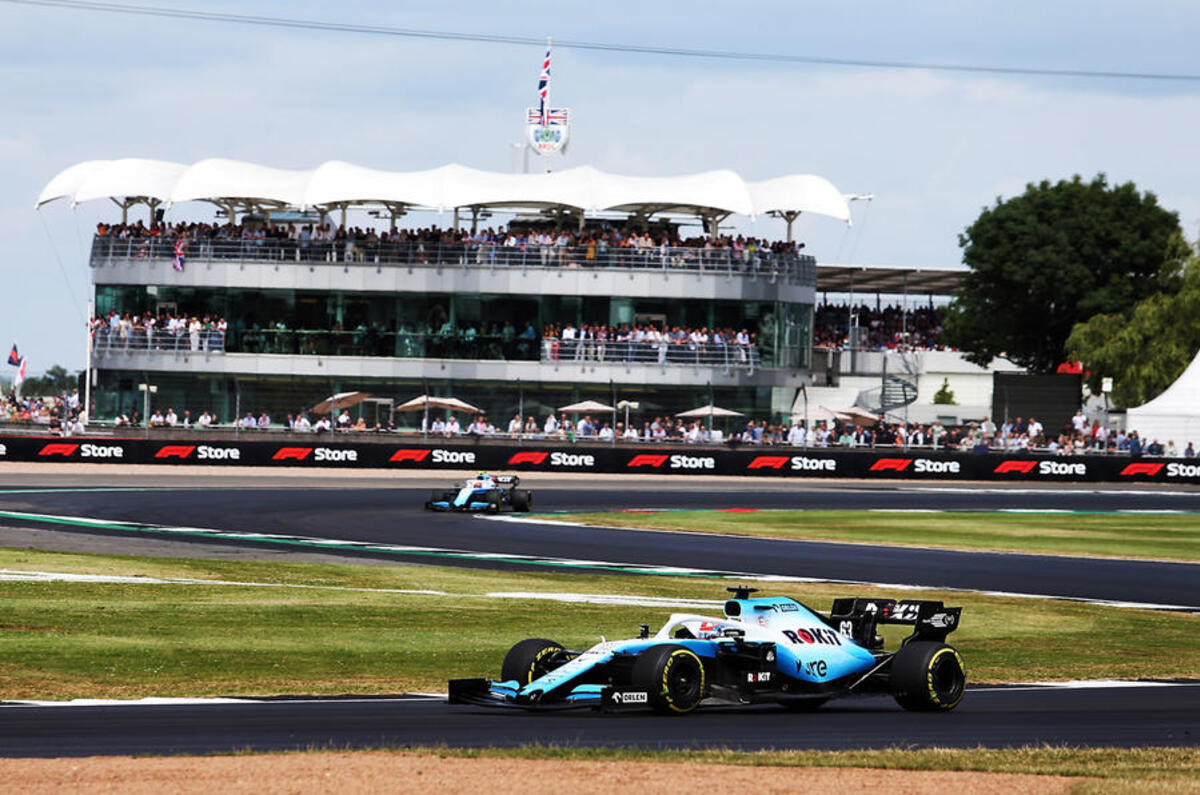You could say that Formula 1 has a spring in its step.
This weekend’s British Grand Prix at Silverstone will introduce an experimental new format, with qualifying as we know it taking place this evening ahead of a short sprint race on Saturday to set the grid for Sunday’s race proper.
Fans are back, too: the main event will be watched by a capacity crowd of 140,000 people, almost 12 months on from Sir Lewis Hamilton’s astonishing three-wheeled victory in front of deserted grandstands.
And the reveal of a mock-up 2022 F1 car to promote the next year’s regulations has also been a source of optimism: a lot of work has gone on behind the scenes to find a formula that allows for much closer racing and, by extension, more excitement.
All of this is taking place against the backdrop of a sustainability drive that bosses say will make F1 carbon-neutral by 2030. Having already pioneered the most thermally efficient engines in the world, it’s hoped the 10% biofuel mix used to power the current 1.6-litre V6 hybrids will be replaced by a fully sustainable fuel when the next generation of engine rules come into force in 2025.
Throw in the environmental activism of drivers like Hamilton and fellow world champion Sebastian Vettel, and the sport looks more thoughtful and forward-thinking than at any other point in its history.
But can this last? F1 is sticking with turbo-hybrids as the car industry turns to battery-electric vehicles. In the UK, we’re less than nine years away from a ban on new petrol and diesel cars, and plugin hybrids are set to be outlawed too by 2035.
F1’s managing director, Ross Brawn, is adamant that the sport can’t go fully electric. Speaking in an interview with the BBC this week, he pointed out that the cars “would need a six- or seven-tonne battery” just to last the race distance.
He isn’t wrong. There are certain types of transport - aircraft being the most obvious example - that just aren’t feasible with lithium-ion batteries, even if their energy density increases rapidly in the coming years. F1 too needs an alternative.




Join the debate
Add your comment
I think F1 and Mr Brawn should take a deeper look into Toyota's 24hr Corolla that you mention. the rear Half of the car was converted to be a giant tank. YES -HALF A MID SIZED HATCHBACK was the 'fuel tank' and due to the combustion dynamics it needed to be refueled 2-3x more often than the cars in the class below it that were kicking its backside in pace terms. F1 cars are already huge and weighty, trying to add in massive high pressure tanks that will require the return to refuelling. I for one would not be looking forward to teams trying their best to refuel high pressure hydrogen as fast as possible.
Re: HiPo
Electric flight will be cheaper meaning that once we get to second generation electric passenger aircraft with 2-3000km range we will see them take over most flying as we start changing aircraft or charging to go longer distances.
Hydrogen is DOA, the battery electric vehicle is much cheaper/efficient to operate (1/3 the energy input) and already has charging networks built out (the national grid). 85% of cars are stored at a property with off street parking, you can run an EV off a 3 pin plug (I have) and an 11KW charger is about £500.
Given that EVs work for 85% of the market the rest of the market will just end up adapting rather than forcing the development of an alternative technology.
Hence why F1 needs to pick between either going electric and embracing shorter races, charging (stationary or on the move) or battery swapping, or going to bio fuels and gradually un hitching from road going automotive.
Horse racing and yachting are still big money sports.